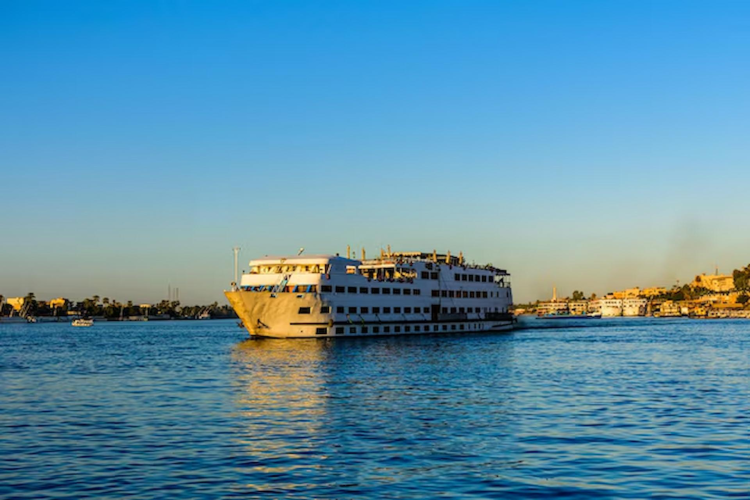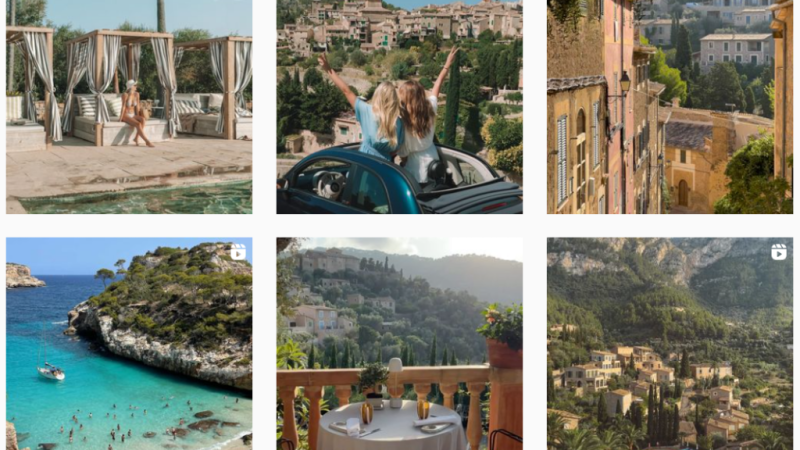Why a Nile River Cruise Offers the Ultimate Cultural Journey

Explore Egypt like never before with a Nile River Cruise—a journey rich in history, culture, and timeless beauty. This cruise offers an unmatched cultural adventure from the Valley of the Kings to the vibrant life along the riverbanks. Witness ancient temples, engage with local communities, and enjoy the serene charm of the Nile. It’s not just a trip—it’s the ultimate way to discover Egypt’s past and present in one continuous, flowing experience.
Exploring Egypt is like stepping into the pages of history. Few experiences match the cultural depth and wonder of sailing along the Nile River, the lifeblood of one of the world’s oldest civilisations. A Nile River Cruise offers a front-row seat to Egypt’s ancient past, stunning landscapes, and enduring traditions—all from the comfort of a boat slowly gliding through history.
Understanding the Importance of the Nile
The Nile is more than just a river—it is why ancient Egypt existed. For over 5,000 years, it has provided water, food, transportation, and fertile land. Civilisations flourished along its banks, leaving behind temples, tombs, and cities that still stand today.
The river runs over 6,600 kilometres, but the most iconic stretch lies between Luxor and Aswan. Most cruises operate here, passing through Egypt’s richest historical zones.
Sailing Through History: Key Sites Along the Nile
Cruising the Nile allows travellers to witness ancient wonders up close. These sites are not merely tourist attractions—they are UNESCO-listed monuments, many over three millennia old.
1. Luxor – The World’s Greatest Open-Air Museum
- Home to the temples of Karnak and Luxor.
- The Valley of the Kings holds over 60 royal tombs, including that of Tutankhamun.
- The Temple of Hatshepsut showcases female rule in ancient Egypt.
Walking through these sites, one cannot help but feel awed by their size, beauty, and historical significance.
2. Edfu – Temple of Horus
- One of the best-preserved ancient temples.
- Built during the Ptolemaic period, dedicated to the falcon god Horus.
- Its inscriptions reveal fascinating details about ancient rituals and daily life.
3. Kom Ombo – A Temple for Two Gods
- Unique double temple dedicated to Sobek (crocodile god) and Horus (falcon god).
- Includes a crocodile museum with preserved mummies.
- Shows the duality of ancient Egyptian beliefs and their approach to the natural world.
4. Aswan – A Cultural Hub
- Features the beautiful Philae Temple on an island.
- The nearby Aswan High Dam transformed Egypt’s economy and geography.
- Also known for Nubian culture and crafts, adding diversity to the journey.
A Living Culture Along the Banks
While ancient ruins are central to the cruise, the Nile supports vibrant modern life. Small villages, green farms, and fishermen in wooden boats are everyday sights.
These glimpses into daily life reveal that the Nile is not just a monument of the past—it continues to shape the present.
- Farmers still use traditional irrigation methods.
- Feluccas (wooden sailing boats) glide past cruise ships.
- Local markets offer spices, pottery, and handmade textiles.
This blend of old and new makes every moment on the river a lesson in continuity.
The Role of the Nile in Religion and Mythology
Ancient Egyptians saw the Nile as sacred. It was central to their mythology, symbolising both life and death. The east bank was associated with birth and sunrise, while the west bank represented death and the afterlife.
This belief is why temples and cities often stood on the east bank, and tombs were built on the west. When you sail down the Nile, you are not just moving through space—you are moving through a spiritual journey embedded in Egypt’s worldview.
A Unique Way to Travel
Midway through your journey, the magic of a Nile River Cruise becomes evident. It’s not just transportation—it’s a mobile window into a world of discovery.
Unlike hectic road trips or crowded tourist buses, cruising offers a calm and immersive way to explore. You wake up daily to new scenery, and destinations are reached while you rest or dine.
What Makes It Special:
- Travel at a slow pace, allowing full appreciation of the scenery.
- No need to pack and unpack—your accommodation moves with you.
- Guided tours at each significant stop provide expert insights.
This format allows for deeper understanding and less travel fatigue, making it perfect for a cultural journey.
Interaction with Local Communities
Some cruises include visits to Nubian villages, offering an opportunity to meet the indigenous people of southern Egypt. Nubians have their language, music, and traditions, and they contribute richly to Egypt’s cultural mosaic.
Visitors can:
- Share tea with locals.
- Watch traditional dance performances.
- Purchase handmade crafts.
These experiences deepen cultural awareness and add personal stories to the historical narratives of temples and tombs.
Ideal for All Age Groups
Whether you are a solo traveller, a couple, or a family, a Nile cruise can cater to all. The blend of education, relaxation, and sightseeing makes it appealing across generations.
- Children learn history in a living classroom.
- Seniors enjoy the slow pace and easy access to significant sites.
- Couples appreciate the romantic scenery and sunsets over the river.
Because the experience is enriching and accessible, it remains a popular choice for cultural tourists.
Food and Traditions Onboard
Meals served on cruises often reflect Egyptian cuisine, offering a taste of the culture through local ingredients and recipes.
- Dishes like ful medames, grilled meats, and lentil soup are everyday.
- Local spices such as cumin, coriander, and hibiscus add flavour and depth.
- Entertainment may include live music or folklore shows.
Dining becomes another dimension of cultural discovery.
Responsible Tourism and Preservation
Tourism plays a vital role in preserving Egypt’s cultural heritage. However, it must be balanced with sustainability. Many cruises are now adopting eco-conscious practices to reduce environmental impact.
This includes:
- Using fuel-efficient engines.
- Managing waste responsibly.
- Supporting local economies by hiring Egyptian staff and sourcing supplies locally.
Visitors protect the environment and Egypt’s legacy by choosing mindful travel options.
Conclusion:
A Nile River Cruise is not just a holiday—it is a journey through time, mythology, and human achievement. It allows travellers to connect with a civilisation that shaped the world while enjoying the beauty of a river that still nurtures life today.
Every moment, from the grandeur of ancient temples to the rhythms of modern life along the banks, reveals a layer of Egyptian culture. It is an experience that educates, inspires, and stays with you long after the journey ends.


